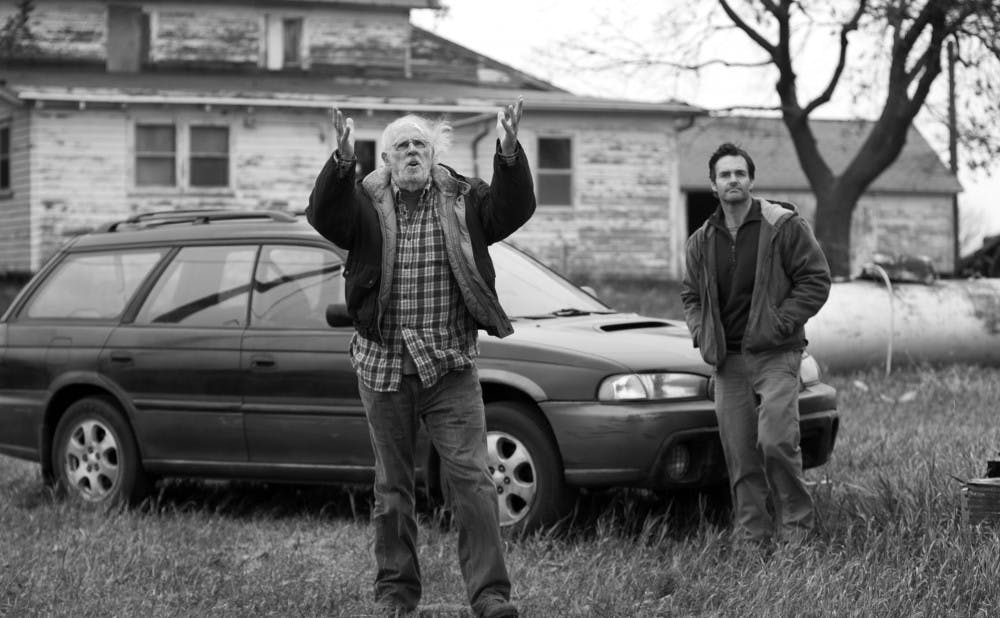Dir. Alexander Payne
Paramount Vantage
2.5/5
Filmed in black and white in the Midwest, “Nebraska” is about an elderly man Woody (Bruce Dern) who believes that he won a million dollars due to a mailing sweepstakes card. His insistence on collecting his obviously fictitious winnings eventually leads one of his sons, David (Will Forte), to drive him from Billings, Montana to Lincoln, Nebraska. Unfortunately, while almost all of the individual aspects of the film are well done, a lack of coherence and complexity ultimately prevents it from being a great film.
In appearance, content and tone, the film harks back to many American films made around the 1970s, notably Peter Bogdonavich’s 1971 “The Last Picture Show.” Like many of these older films, “Nebraska” is able to depict the loneliness, morally corrupt underbelly and deteriorating powers of small towns, in part due to the appropriate decision to film the movie in black and white. While many of the 1970s era films focus on younger characters such as high school students, “Nebraska” focuses on much older characters. This discrepancy could have led to an interesting conversation between “Nebraska” and the older films, but that is prevented by seemingly narrow characterizations, with almost all of the characters appearing as stereotypes.
When David and Woody stop in Woody’s small, deteriorating home town, the old men are all depicted as creatures with hardly any life left in them. In one of the most poignant scenes, a group of men is sitting around the television, with any questions answered uncomfortably long after they were asked with curt, disinterested and not always relevant answers. The women spend all of their time gossiping about the past, and of the two younger residents shown, one has recently been charged with sexual assault, and both are both are depicted as lazy and cruel. When the various residents find out about Woody’s “winnings,” the apathy fades and the claws come out. On the other hand, David appears almost too benevolent, doing everything his father wants regardless of the cost, how he is treated or what he thinks is best. Due to the way these characters are portrayed, the film oscillates between excessively bleak pessimism and arguably equally excessive optimism. While these types of characters can sometimes be useful, here they seem to mitigate the points attempting to be made.
That being said, some elements of the film were noteworthy. Many of the acting performances were very well done, especially Bruce Dern who has already won the Best Actor prize at the Cannes Film Festival as well as numerous other awards for his role. Likewise, the music and the cinematography were both great on their own but became greater than their individual parts when combined.
Get The Chronicle straight to your inbox
Signup for our weekly newsletter. Cancel at any time.

